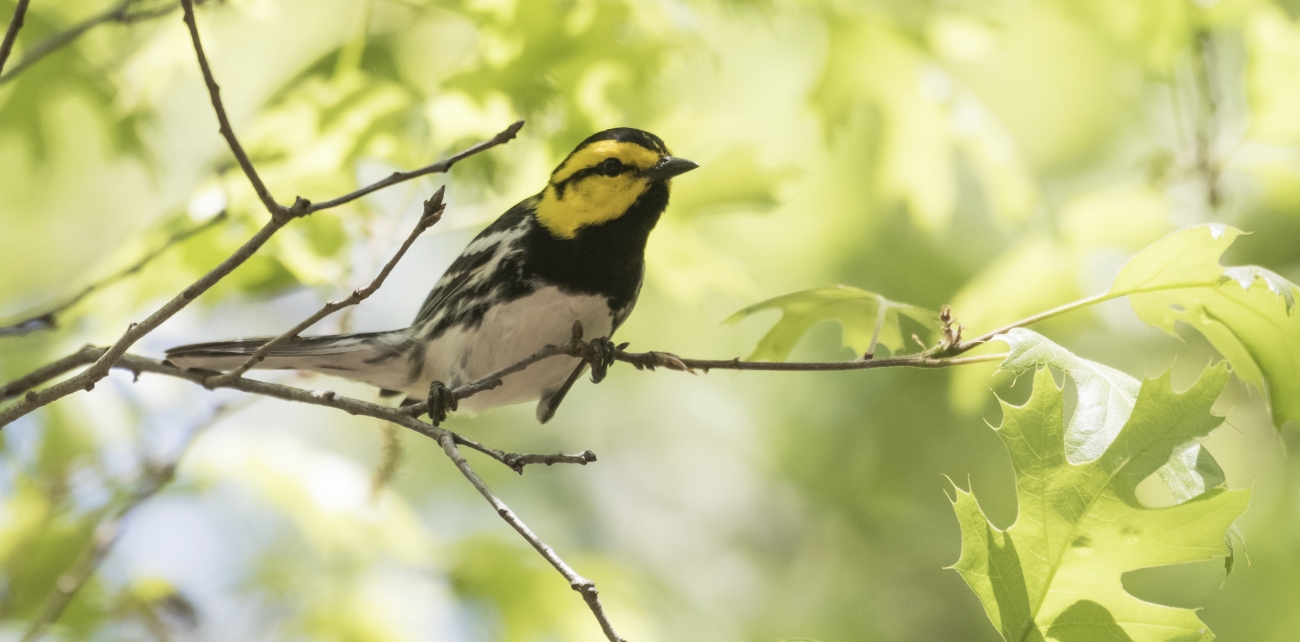
The U.S. Fish and Wildlife Service (FWS) recently announced a significant decision regarding the golden-cheeked warbler, a small songbird native to Central Texas. The FWS recommended downlisting the bird from “endangered” to “threatened” under the Endangered Species Act, marking a pivotal shift in its conservation status. This decision comes amid growing concerns about the bird’s habitat, which faces threats from land development and climate change.
The golden-cheeked warbler holds a special place in Texas’s natural heritage. It is the only bird species that breeds exclusively within the state, relying on the juniper-oak woodlands of the Texas Hill Country for nesting. Its distinct reliance on this specific habitat has made it a symbol of Central Texas’s biodiversity and a focal point for conservation efforts.
The Long Road to Downlisting
The decision to change the warbler’s status follows a routine five-year assessment by the FWS. Published earlier this week, the review concluded that the species no longer meets the criteria for an “endangered” listing, citing improvements in population trends and habitat availability. However, the downlisting recommendation is not final; it requires approval from the U.S. Secretary of the Interior and a formally proposed rule published in the Federal Register which will be subject to public review and comment.
A Decade of Legal Battles
The golden-cheeked warbler’s conservation status has been a contentious issue for years. In 2019, a federal judge upheld its endangered status, pointing to ongoing habitat loss caused by urban development, infrastructure expansion, and other human activities in the Texas Hill Country. However, a subsequent ruling by the 5th U.S. Circuit Court of Appeals in 2020 mandated the FWS to reevaluate the bird’s status.
A new 90-day finding by the FWS is expected to be announced in the coming months in response to the September 5, 2024 U.S. district court ruling which held the Service improperly reviewed and denied a delisting petition by the General Land Office. The 90-day finding will determine whether the formerly filed petition presents substantial evidence that delisting the bird is or is not warranted.
The five-year status review culminated in the latest proposal to downlist the warbler, despite opposition from conservation groups who argue that the threats to its habitat have not diminished. The potential reduction in federal protections has raised concerns about the birds’ long-term survival in the face of increasing land use pressures and climate variability.
Implications for Environmental Permitting
For companies involved in land development and environmental permitting, this decision introduces new considerations. A “threatened” designation typically comes with fewer regulatory restrictions than an “endangered” listing. This could streamline permitting processes in areas where the warbler’s habitat overlaps with development projects. However, developers should remain vigilant, as public comments and legal challenges may influence the final outcome of the FWS recommendation.
What’s Next?
The road ahead includes a decision from the U.S. Secretary of the Interior and a potentially lengthy proposed rulemaking process including public input and review. Until then, the golden-cheeked warbler remains listed as endangered. Whether the bird’s status is ultimately downlisted or not, its story underscores the delicate balance between conservation and development in Texas.
At Westward, we’re committed to helping clients navigate these complex regulatory landscapes. If your project intersects with sensitive habitats like those of the golden-cheeked warbler, our Ecology & Natural Resources division can provide guidance on environmental permitting and compliance. Reach out to us should you need consultation.

Photo credit: Melissa Cheatwood
Westward – Copyright 2024